To provide the best experiences, we use technologies like cookies to store and/or access device information. Consenting to these technologies will allow us to process data such as browsing behaviour or unique IDs on this site. Not consenting or withdrawing consent, may adversely affect certain features and functions.
The technical storage or access is strictly necessary for the legitimate purpose of enabling the use of a specific service explicitly requested by the subscriber or user, or for the sole purpose of carrying out the transmission of a communication over an electronic communications network.
The technical storage or access is necessary for the legitimate purpose of storing preferences that are not requested by the subscriber or user.
The technical storage or access that is used exclusively for statistical purposes.
The technical storage or access that is used exclusively for anonymous statistical purposes. Without a subpoena, voluntary compliance on the part of your Internet Service Provider, or additional records from a third party, information stored or retrieved for this purpose alone cannot usually be used to identify you.
The technical storage or access is required to create user profiles to send advertising, or to track the user on a website or across several websites for similar marketing purposes.
 If a robot worker makes a mistake on the job, or annoys customers, businesses may not give it a pink slip and a cardboard box for its office belongings, but companies may be forced to shut down these expensive machines, according to a team of researchers. Knowing how to better design and manage these robots may help service industry firms both avoid losing their investments in the robots, as well as secure an increasingly necessary source of extra help, the team added. (more…)
If a robot worker makes a mistake on the job, or annoys customers, businesses may not give it a pink slip and a cardboard box for its office belongings, but companies may be forced to shut down these expensive machines, according to a team of researchers. Knowing how to better design and manage these robots may help service industry firms both avoid losing their investments in the robots, as well as secure an increasingly necessary source of extra help, the team added. (more…)








 In those heady pre-lockdown days, the most common complaint about office life, and especially open plan office life, was the inability to get work done without distraction. Now a new paper from researchers at the University of Illinois suggests that the interruptions may have served some purpose in the way they helped people feel a sense of belonging in the workplace.
In those heady pre-lockdown days, the most common complaint about office life, and especially open plan office life, was the inability to get work done without distraction. Now a new paper from researchers at the University of Illinois suggests that the interruptions may have served some purpose in the way they helped people feel a sense of belonging in the workplace. 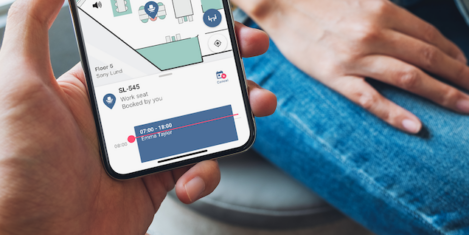
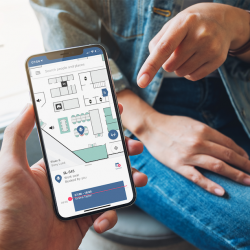 If you work in a larger office environment, the chances are your favourite aspect of work isn’t wandering around in search of a place to sit. Booking meetings probably doesn’t rank that highly either. Or locating colleagues. Sony believe in using intuitive technology to make everyday tasks as straightforward and stress-free as possible. Hence the development of the
If you work in a larger office environment, the chances are your favourite aspect of work isn’t wandering around in search of a place to sit. Booking meetings probably doesn’t rank that highly either. Or locating colleagues. Sony believe in using intuitive technology to make everyday tasks as straightforward and stress-free as possible. Hence the development of the 
 People working from home during the pandemic are experiencing higher levels of stress and withholding mental health conditions from their employer, for fear of a negative impact on career progression, according to a new
People working from home during the pandemic are experiencing higher levels of stress and withholding mental health conditions from their employer, for fear of a negative impact on career progression, according to a new 
 Employees who find their job meaningful increase the likelihood of better performance reviews by suggesting ways of improvement for their companies, claims research from
Employees who find their job meaningful increase the likelihood of better performance reviews by suggesting ways of improvement for their companies, claims research from 
 Almost two million workers were unemployed or fully furloughed in January – and had been for at least six months – highlighting the scale of lasting damage to the UK’s labour force that will need to be addressed in the Budget, according to major new research published today by the Resolution Foundation.
Almost two million workers were unemployed or fully furloughed in January – and had been for at least six months – highlighting the scale of lasting damage to the UK’s labour force that will need to be addressed in the Budget, according to major new research published today by the Resolution Foundation. 
 Two and a half million Brits are expected to be unemployed this year after the fall out of the pandemic. A concern for many has been how disabled people will fare with the aftermath. The unemployment rate for people with disabilities is more than twice those who are able bodied.
Two and a half million Brits are expected to be unemployed this year after the fall out of the pandemic. A concern for many has been how disabled people will fare with the aftermath. The unemployment rate for people with disabilities is more than twice those who are able bodied. 
 More than 40 percent of young people aged 16-24 surveyed in the UK say they are putting their career or education plans on hold until the pandemic is over. The research, commissioned by
More than 40 percent of young people aged 16-24 surveyed in the UK say they are putting their career or education plans on hold until the pandemic is over. The research, commissioned by 
 Working from home is exacerbating an ‘always on’ culture. Data from a study of UK employees, conducted by virtual team building company
Working from home is exacerbating an ‘always on’ culture. Data from a study of UK employees, conducted by virtual team building company 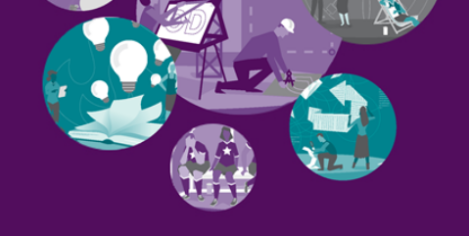
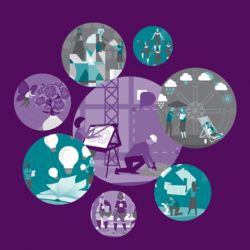 The
The 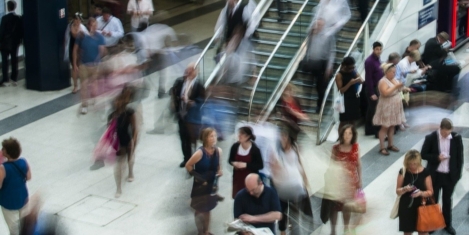
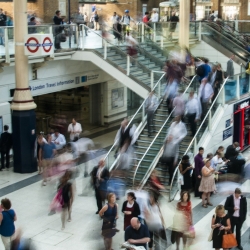 While workers in the UK have been working from home, if they can, for almost a year, a third say they miss commuting, claims research from recruiter
While workers in the UK have been working from home, if they can, for almost a year, a third say they miss commuting, claims research from recruiter 
 Improving air quality in the fight against COVID-19 could give businesses the edge over their competitors and attract more customers, according to a top UK university scientist. Writing in a new report for facilities services provider
Improving air quality in the fight against COVID-19 could give businesses the edge over their competitors and attract more customers, according to a top UK university scientist. Writing in a new report for facilities services provider 







